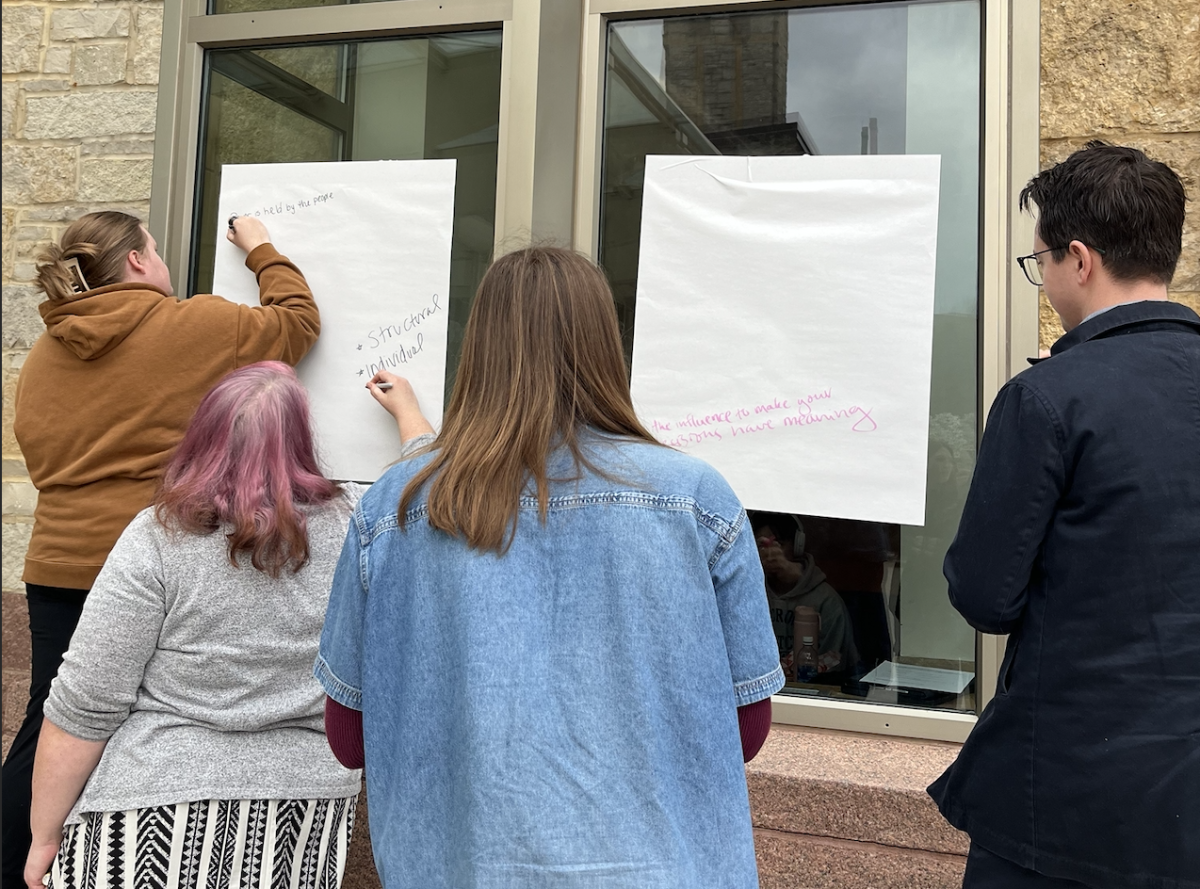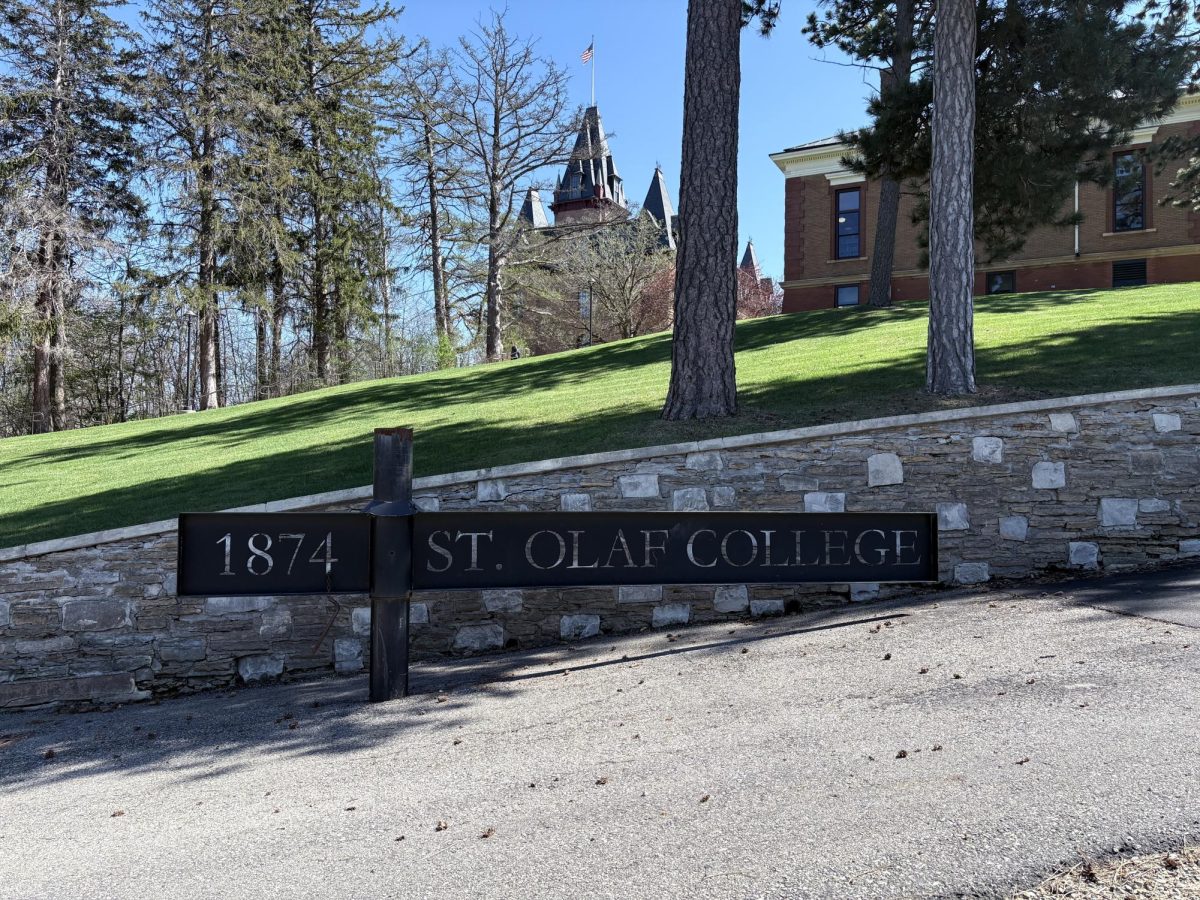U.S. Immigration and Customs Enforcement (ICE) released new regulations on Monday, July 6, that will prevent foreign college students from staying in the country if their schooling is carried out entirely online in the fall.
How do these new regulations affect international students, and how is St. Olaf responding? Read on for an explanatory Q&A
Where does St. Olaf currently sit in regards to the new ICE regulations?
Currently, the College is adopting a hybrid model for the fall semester that includes a mix of both online and in-person classes. This means that St. Olaf international students will be able to take both in-person and online courses in the fall in the same way domestic students would be able to.
The new regulation is not the Final Rule in the Federal Register, according to Megan Carmès, Assistant Director for International Student Engagement in the Taylor Center for Equity and Inclusion. This means that the fall 2020 guidance could continue to change before the semester begins, leaving international students at St. Olaf and across the country in an unpredictable position after the new, updated guidelines were released.
Will international students be allowed to remain in the U.S. under St. Olaf’s current fall plans?
Yes. Since St. Olaf is currently adopting a hybrid model, the updated guidelines will allow international students currently located in the U.S. to remain in the country for their studies.
How will international students’ schooling be affected by these new regulations?
Each international student will be allowed to take online courses. However, to meet the new regulations, all international students must have at least one in-person component of their schooling in the U.S.
Moreover, colleges must certify that each student permitted by a F-1 visa is taking “the minimum number of online classes required to make normal progress in their degree program” to remain in the U.S., according to the new federal guidance.
It is currently unclear how St. Olaf will meet this certification, but President David Anderson ’74 has assured community members that the Registrar will continue to work individually with international students.
Does the College anticipate a switch to a more hybrid or entirely online system in the fall as COVID-19 continues to progress?
According to an email from President Anderson to The Messenger, the College does not currently anticipate a switch to entirely online schooling in the fall. The College is planning a hybrid system with a mix of in-person and online courses for students.
What will happen to international students if the College switches to entirely online schooling in the fall?
International students will be forced to leave the country if St. Olaf switches to entirely online schooling in the fall and if current regulations remain in place. President Anderson has assured community members that the College will work to accommodate international students on campus the best that they can in the event that St. Olaf is allowed to accommodate students.
International students will be able to continue their schooling off-campus if the College switches entirely online.
Will international students currently abroad be allowed to return to campus for in-person schooling in the fall?
Under the College’s current approach, international students currently abroad will be allowed to return to campus to complete their studies, as long as they can receive visas and other necessary documentation and are not blocked by travel restrictions.
President Anderson has ensured community members that the College is continuing to work individually with international students who are currently outside the U.S. to ensure their fall schooling is handled successfully. The Taylor Center for Equity and Inclusion, Dean of Students, Admissions, Financial Aid and the Registrar are all assisting international students currently abroad.
How are other colleges around the country reacting to the new regulations?
The Massachusetts Institute of Technology and Harvard University filed a joint lawsuit against ICE and the U.S. Department of Homeland Security (DHS) on Wednesday, July 8, asking a Massachusetts court to prevent ICE and DHS from enforcing the new guidance and to declare it unlawful.
Tens of other colleges and universities, including the University of Minnesota, have supported the lawsuit through the filing of amicus briefs.
The Association of American Universities (AAU) President Mary Sue Coleman released a statement on behalf of AAU criticizing the new regulations as “immensely misguided and deeply cruel to tens of thousands of international students who come to the United States every year,” the statement reads.
Other peer institutions have taken no conclusive steps but have offered support for their international students and criticism for the new regulation.



